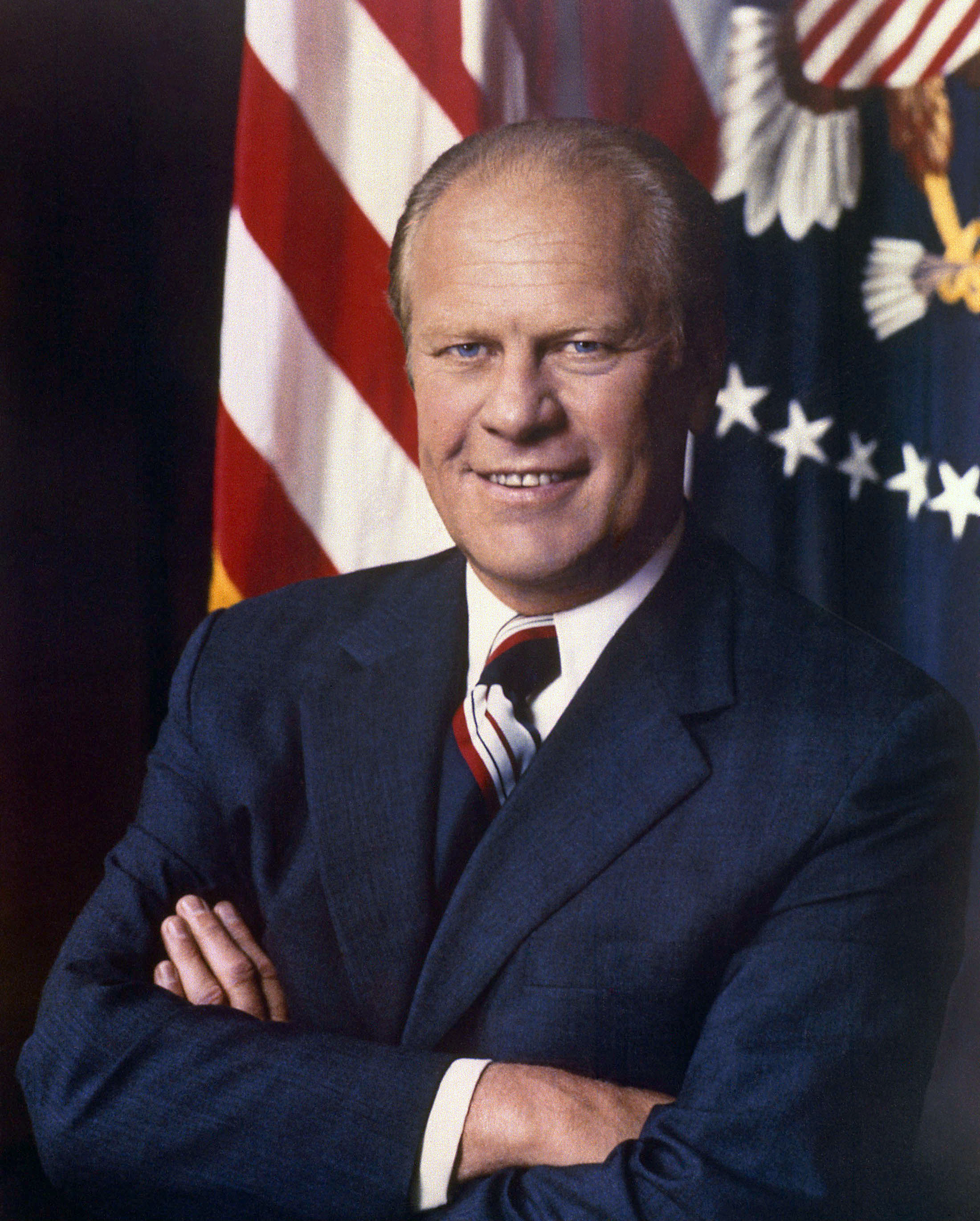Interview in The Readers Digest (October 1976)
1970s
Gerald Ford: Citations en anglais
1970s, Proclamation 4417 (1976), Remarks
Variante: We now know what we should have known then--not only was that evacuation wrong, but Japanese-Americans were and are loyal Americans. On the battlefield and at home, Japanese-Americans -- names like Hamada, Mitsumori, Marimoto, Noguchi, Yamasaki, Kido, Munemori and Miyamura -- have been and continue to be written in our history for the sacrifices and the contributions they have made to the well-being and security of this, our common Nation.
“Tell the truth, work hard, and come to dinner on time.”
As quoted in Time and Chance (1994) by James Cannon, p. 411.
1970s, Proclamation 4417 (1976), Remarks
Remarks at the National Press Club (29 October 1975)
1970s
“America needed recovery, not revenge. The hate had to be drained and the healing begun.”
On pardoning Nixon, in A Time to Heal (1979)
1970s
A statement made in a video interview from here (1995) http://www.veoh.com/collection/davebelskistalk/watch/v159267997BpS5JDR
1990s
1970s, Proclamation 4417 (1976)
Interview in TIME magazine (2 February 1976)
1970s
As quoted in The New York Post (13 August 1974)
1970s
On the Nixon tapes, in a speech to the University of Michigan, Ann Arbor, as quoted in The New York Times (4 May 1974)
1970s
Humor and the Presidency (1987).
1980s
1970s, First Vice-Presidential address (1973)
1970s, Proclamation 4417 (1976), Remarks
1970s, Proclamation 4417 (1976)
Speech as Vice President to the Anti-Defamation League of B'nai B'rith, West Palm Beach, Florida (26 January 1974); entered into the Congressional Record vol. 120, p. 2044.
1970s
Statement about Americans who avoided the draft during the Vietnam War, to Veterans of Foreign Wars, Chicago, Illinois (19 August 1974)
1970s
Letter to the Archbishop of Cincinnati (10 September 1976) http://www.presidency.ucsb.edu/ws/print.php?pid=6320
1970s
Source: 1970s, Address to Congress (12 August 1974)
Address to the state conference of the Order of DeMolay, Grand Rapids, Michigan (7 September 1968); published in Gerald R. Ford, Selected Speeches (1973) edited by Michael V. Doyle
1960s
During hearings before the US House of Representatives Committee on the Judiciary, on his nomination to be Vice-President (15 November 1973)
1970s
Address at Jacksonville University, Jacksonville, Florida (16 December 1971); published in Gerald R. Ford, Selected Speeches (1973) edited by Michael V. Doyle
1970s
Remarks in the U.S. House of Representatives in an effort to impeach Supreme Court Justice William O. Douglas (15 April 1970); recorded in the Congressional Record, vol. 116, p. 11913 and http://www.senate.gov/artandhistory/history/common/briefing/Senate_Impeachment_Role.htm.
1970s
Remarks at Naturalization Ceremonies at Monticello, Virginia https://www.fordlibrarymuseum.gov/library/speeches/760649.htm (5 July 1976)
1970s
